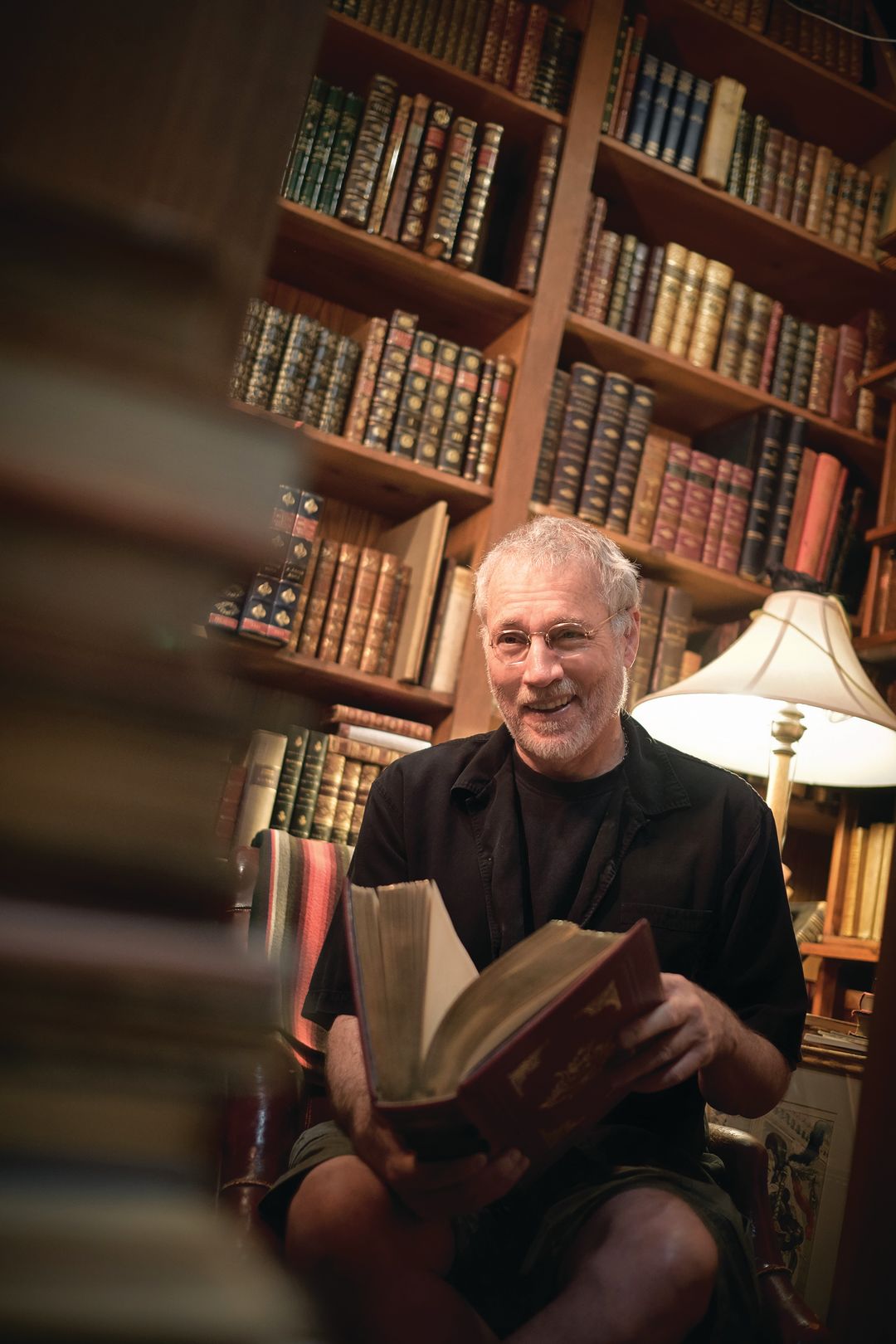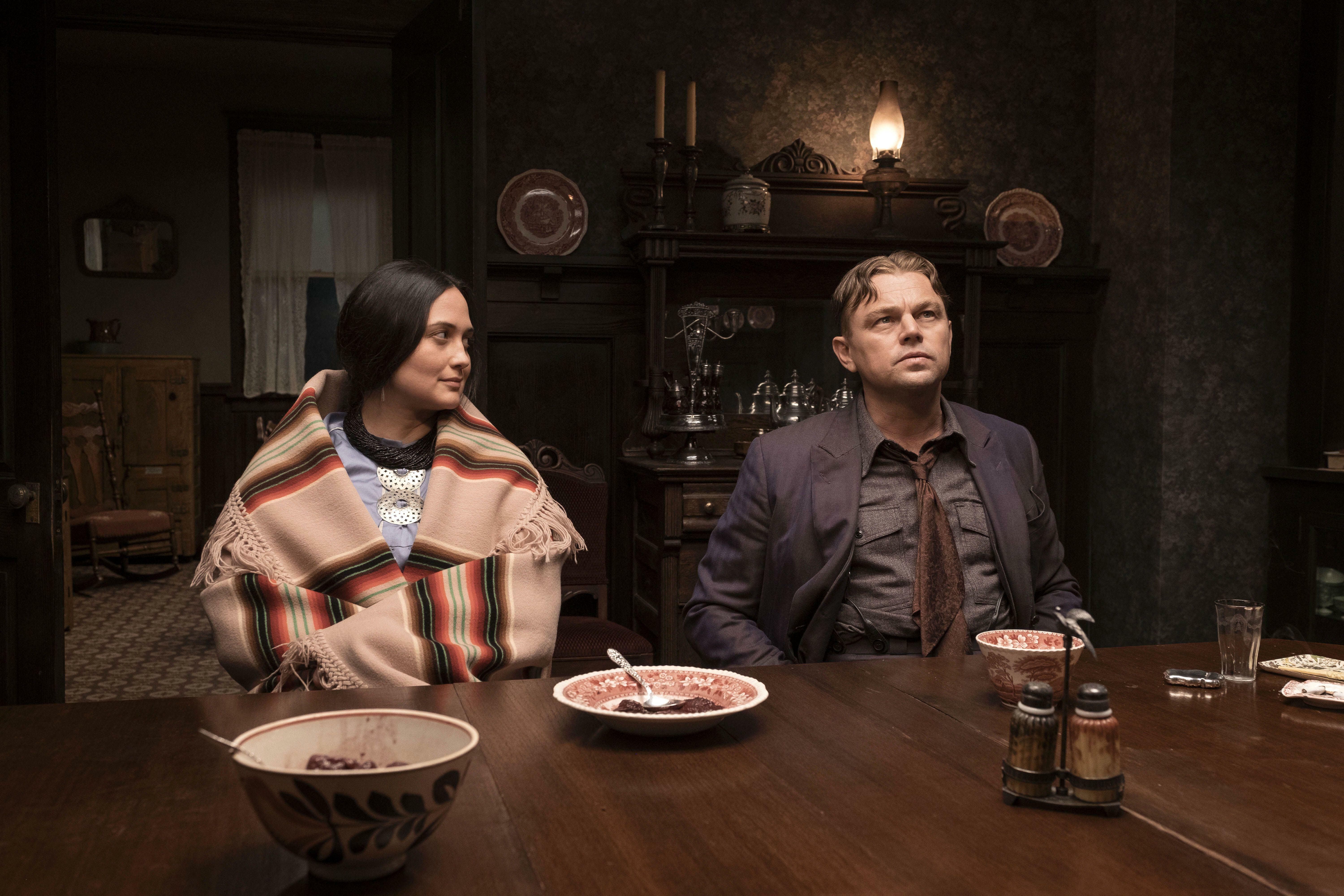Uncovering the Rare Treasures at A. Parker's Book Bazaar

Gary Hurst has been running his bookstore for 38 years.
Image: Everett Dennison
Every time I return to Sarasota I fear that A. Parker’s Book Bazaar on Main Street, one of Sarasota’s last remaining independent bookstores, will have been replaced by an overpriced seafood joint with a live Jimmy Buffett band. But each time I come back, there it is, same as it ever was. Same sweet and sour smell of old paper getting older. Same cashier’s desk buried under stacks of new inventory. The same cramped aisles of overstocked shelves towering over customers like they might bury them alive.
I find something different each time I visit. Most recently I found a copy of a candy pink Carl Sagan book about intelligent life in the universe; dozens of vintage sci-fi pulp paperbacks with titles like Brigands of the Moon, Calling Captain Future and Galactic Derelict—all with illustrations of alien femme fatales tempting brawny spacemen; Miniature Lamps II, because Miniature Lamps I wasn’t enough; a phallocentric art how-to, Kokigami—The Intimate Art of the Little Paper Costume, complete with a warning sticker that it should not be used as a contraceptive; the curiously titled An Introduction to Political Astrology; and a deeply personal journaling of heartbreak on the margins of an Abraham Lincoln biography.
Gary Hurst, 71, is the owner of this bookstore. He is white-whiskered, thoughtful and enunciates more clearly than a news anchor. Hurst was born into the book world. His father worked at Doubleday as vice president of west coast sales, and young Gary followed him there for a time, doing editorial work. Hurst eventually left Doubleday to clerk at the famous Kepler’s Books in Menlo Park, California. “To be a book seller there was to be a cultural hero,” Hurst says. “The waiting list just to be a clerk at Kepler’s was endless.”
Throughout Hurst’s life, he and his folks spent time in Sarasota. In 1975, Hurst moved to Sarasota for good and five years later bought the original Parker’s Books, then called World of Books, a small storefront on Main Street, just down the street from where the current store sits.
At the time, World of Books was owned and operated by the enterprising Charlie and Doris Twain, who, in addition to selling books and circus figurines at the store also owned commercial properties in Sarasota. The Twains were not book lovers, Hurst says. They were “widgets,” he says, who believed that “if you had something, you could sell something.” A New Jersey businessman got into the bookstore business with the Twains, but when it didn’t pan out, the businessman “just up and left one day, leaving a huge collection of used books behind.” Hurst ended up buying the building—and the books—from the Twains in the early 1980s, even though in his opinion there were too few books to really call it a bookstore. “It took me years to fill it,” he says.
Now Hurst has over 70,000 books in his ever-changing inventory. His clients range from tourists looking for a paperback to read on the beach to international collectors willing to shell out six figures for a collectible. For nearly four decades, he has kept Parker’s going. He’s dodged Waldenbooks, endured Barnes and Noble, survived Kindle and Amazon. It hasn’t been easy, he says.
What keeps the store alive is in the back behind a locked glass door—a room filled with artifacts and collectibles that Hurst sells to collectors all around the world. Hurst showed me his collection of edge paintings—books with landscapes painted along the opposite edge of the spine that could only be seen if you bent the book slightly. He owns scores of hand-colored lithographs of flora and fauna that sell for thousands of dollars each. The oldest artifact Hurst had in his collection was a small Italian book the size of a smartphone from 1604 called Il Ofredo Overo—a poem about the liberation of Jerusalem. I nervously held it in my hands, tenderly turning each fragile page that I could not read. The most expensive item Hurst ever sold was The Holy Land, Syria, Idumea, Arabia, Egypt & Nubia by David Roberts. He was commissioned by a prominent New England family whose parents had died to sell the book on the collector’s market, where it was purchased for a few hundred thousand dollars.
Why would people spend so much money on books?
“Nostalgia plays a big part,” says Hurst. “If you read Sherlock Holmes at a young age" [Hurst showed me a first edition, leather-bound book from the fictional detective series], “and it speaks to you later on, perhaps it reconnects a part of you. Book collecting is akin to all collecting. You are collecting beyond the thing itself.”
I asked Hurst if he collected anything for himself. “No,” he said. “It takes a lot of care. It’s a lot of work here. I don’t want to bring it home.”
I asked him what he’s currently reading. “I’d read more if I didn’t own a bookstore,” he said. “People come in and say, ‘Oh! I’d love to own a bookstore. I’d read all day.’ Good luck with that.”
Luckily, Hurst owns this bookstore for the rest of us. Strolling through the cramped aisles of Parker’s Books, I am reminded of all the knowledge I will never know until I find something I didn’t know that I wanted. It was a tiny old copy of Jerzy Kosiński’s Being There that I bought for $4 and tucked in the back of my pants pocket.



